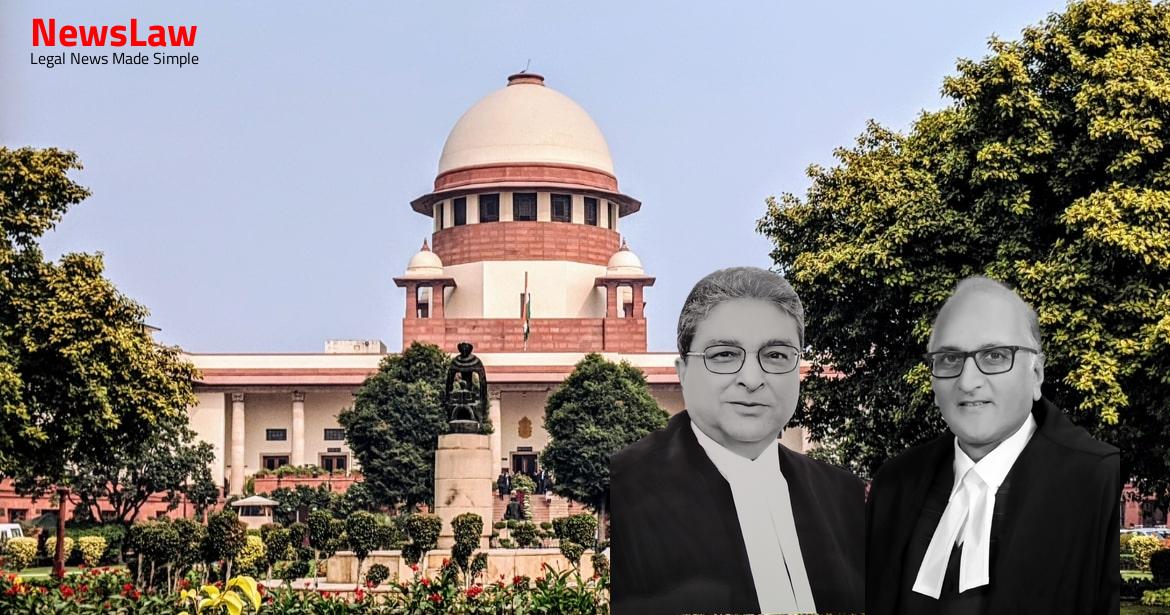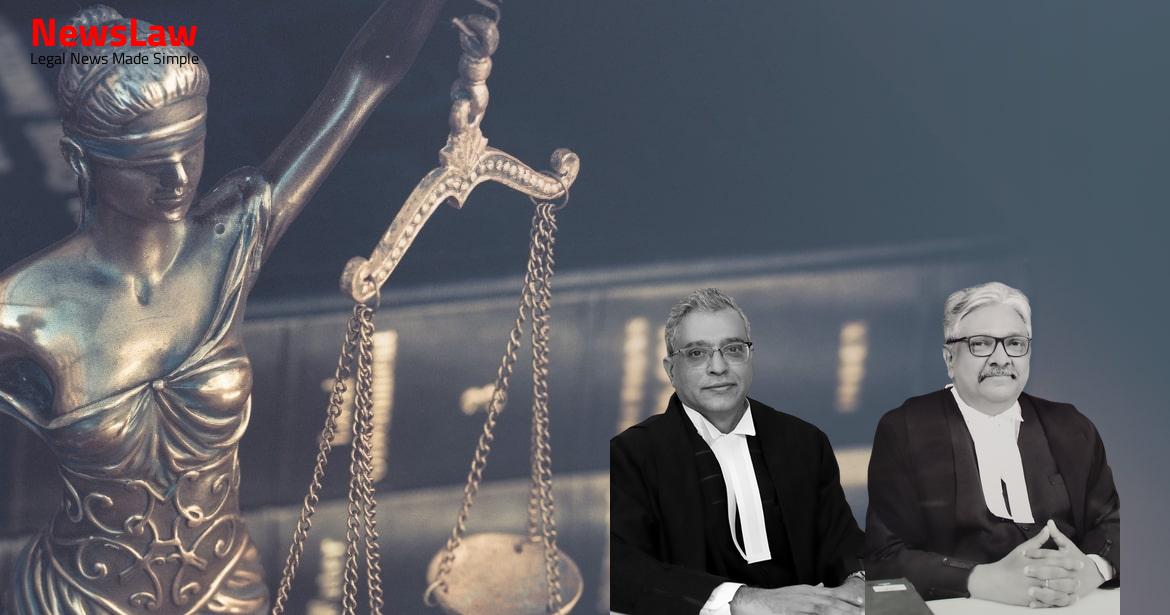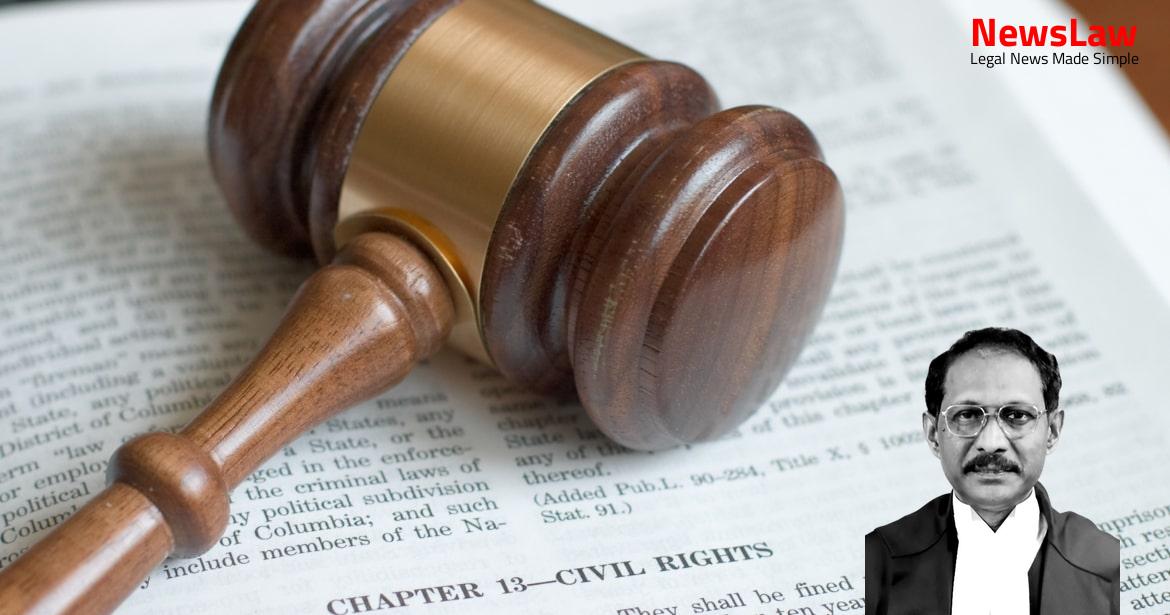In a legal analysis of a recent case, the court delved into the complexities of determining seniority in recruitment processes. Specifically, the court examined the application of Rule 27 and its impact on the ranking of direct recruits versus departmental candidates. The court’s in-depth analysis shed light on the nuances of seniority determination, offering valuable insights into the legal framework governing such matters.
Facts
- Two writ proceedings challenged the seniority position allotted to the DRs except for a few DPs and official respondents.
- DRs objected to their placement and sought correction of the seniority list.
- The main grounds of attack in the writ petition were simultaneous recruitment of DRs and DPs and alleged mala fide issuance of appointment letters to favor DPs.
- Rule 27(2) of the Seniority Rules was particularly considered by the Single Judge, stating that earlier selections take precedence in seniority.
- Departmental Selection Committee was constituted on 4 October 2010 to fill 554 posts of Tax Assistants.
- A seniority list published on 5 June 2013 showed DPs senior to DRs, sparking objections.
- Appellants objected to this placement, and the department confirmed their positions in a final list on 18-09-2015.
- Further challenges were mounted against the seniority list on 30.05.2016, with Division Bench allowing the appellants to question the eligibility of DPs to be recruited.
- Various recruitment processes, examinations, and promotions for DRs and DPs were conducted from 2010 to 2016.
- Multiple seniority lists were issued, with DPs consistently being shown above DRs.
- The appeals challenge the judgment of the Rajasthan High Court regarding the seniority lists and recruitment processes.
- The Division Bench of the High Court allowed appeals by DPs after noting that Rule 27 had been amended.
- The main provision of Rule 27 was amended on 10.10.2002 adding a second proviso which would operate when two selections are for the same category.
- The proviso cannot nullify the main provision and both provisions need to be considered.
- The Division Bench set aside the single judge’s order, ruling that the DRs were not entitled to claim seniority over the DPs.
- The Single Judge’s conclusion highlighted the relevance of the date of appointment when considering earlier and subsequent selections followed by appointments.
Also Read: Electoral Malpractices in Mayor Election
Issue
- Rival submissions at the Bar on which Rule would govern inter se seniority
- Undisputed vacancies prior to July 1989, advertisement issued earlier, and selection process completed on 11-7-1989
- Relevance of Rules existing at the time of selection process
Also Read: Balancing Power and Transparency: Electoral Bonds Struck Down, Disclosure Mandated
Arguments
- The State conducted recruitment for DR and DP categories at different speeds, disadvantaging the DR recruits.
- The State’s explanation for the delay in issuing appointment letters to DR candidates was questioned given the established facts.
- The interpretation of Rule 27 by the Division Bench was argued to be incorrect.
- The argument was presented that the seniority rule should be applied based on the date of appointment, especially when recruitment is through different advertisements.
- The malice against DRs due to the State’s actions to grant unfair advantage to DP candidates was highlighted.
- Pressure from the Departmental Employees Association was noted to have influenced the recruitment process in favor of DP candidates.
- The seniority rule (Rule 27) was emphasized, stating that direct recruits must be considered senior to departmental candidates selected later.
- The retention of proviso (2) in Rule 27 was explained to ensure clarity in seniority determination when recruitment is through different sources.
- The proviso (2) was seen as an exception to the main provision, aiming to avoid ambiguity in seniority ranking for the same post.
- Unprecedented priority was given to select candidates for the 20% departmental quota, further highlighting the bias against DR candidates.
- The DP candidates were not required to undergo typing tests, police verification, or medical examination due to their long-standing service with the Government.
- The proviso within the rule must not supplant the main provision of the law.
- The recruitment process for the newly created posts involved two sets of selections: one for DRs and one for DPs.
- Rule 27 dictates that seniority is determined by the order of selection within the same category of recruits.
- Seniority based on entry into the cadre applies when recruits are from different categories like promotees and direct recruits.
- The recruitment drive in 2011 aimed to fill newly created positions and received a significant number of applications.
- The recruitment process took two months, which was considered reasonable given the large geographic area of Rajasthan.
Also Read: Recall of Resolution Plan Approval: Legal Analysis
Analysis
- Decision to conduct recruitment and selection process was composite
- DRs argued delay in appointment was result of manipulation to favor DPs
- Seniority determined based on date of appointment before 2002 amendment
- Seniority determined based on merit after 2002 amendment
- Seniority determined based on training merit for candidates undergoing training
- Impugned judgement considered valid, no interference needed
- Separate selection processes not held due to vacancies in new post
- Seniority of promotees justified by Rule 27
- 80% DR quota had separate eligibility criteria hence separate advertisement
- 20% DP quota filled by departmental promotees, different advertisement
- Advertisements issued on separate dates but not separate recruitment processes
- Seniority determined based on merit order for candidates sent for training
- Rule 303 amended in 1990 and 1993, but unamended rule applied in this case
- Seniority determined based on date of appointment as per Rule 27
- Seniority of persons appointed to the lowest post of the Service is determined from the date of appointment.
- Seniority of persons appointed by promotion to higher posts in the Service is determined from the date of their regular selection to such posts.
- Seniority inter-se of persons appointed before the commencement of the rules or during integration of services may be determined, modified, or altered by the Appointing Authority on an ad hoc basis.
- Persons selected and appointed as a result of a selection not subject to review and revision rank senior to those selected through subsequent selection.
- Seniority of persons selected on the basis of seniority-cum-merit and on the basis of merit in the same selection will be the same as in the next grade.
- The second limb of the second proviso clarifies that when merit based, or seniority based promotions are resorted to, the applicable norm would be seniority in the feeder cadre.
- This clarification aims to prevent any debate about the rule of merit being the guiding principle in the selection process.
Decision
- The appeals have been dismissed.
- No order has been given on costs.
Case Title: MANOHAR LAL JAT Vs. THE STATE OF RAJASTHAN (2020 INSC 660)
Case Number: C.A. No.-003832-003833 / 2020



